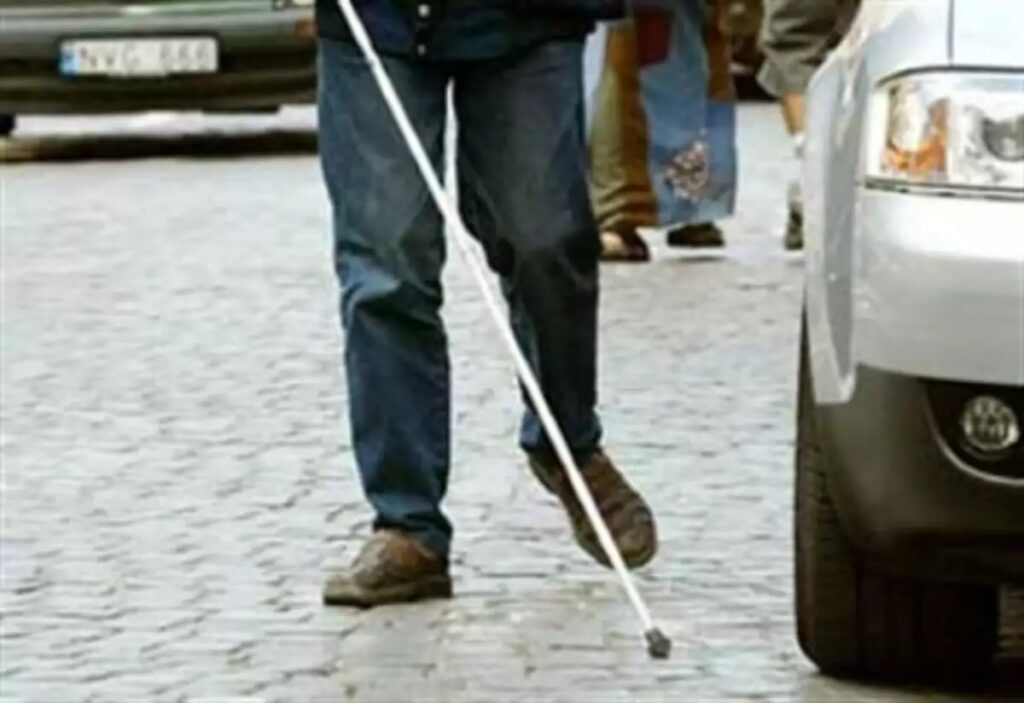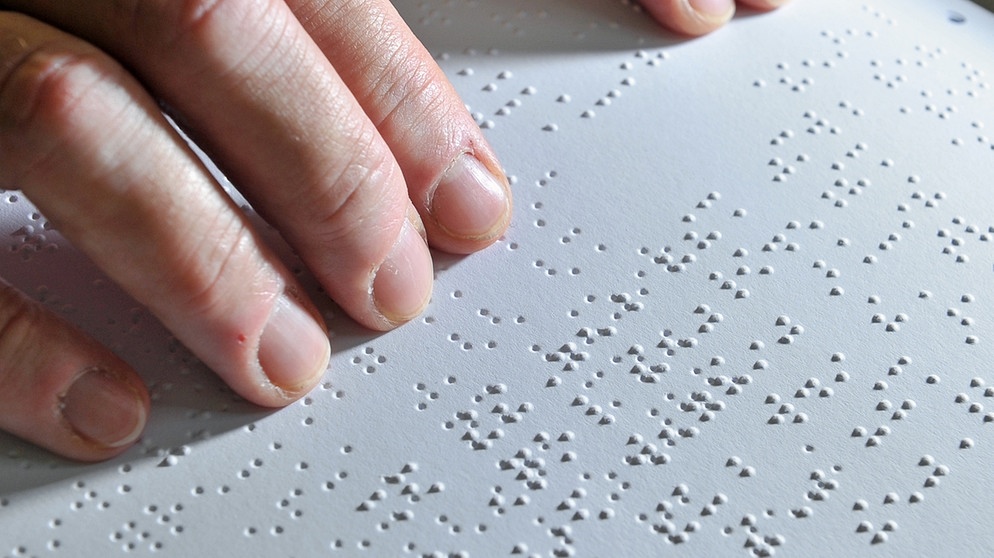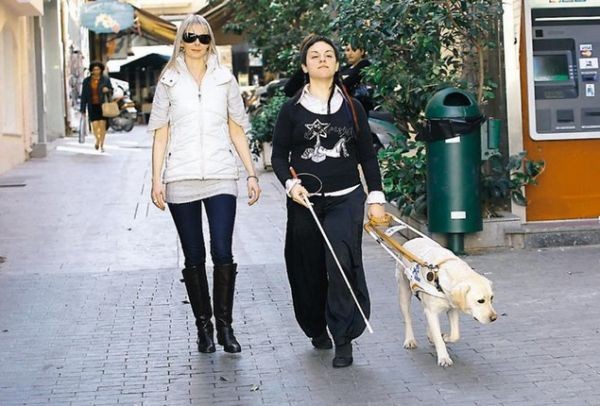Filenews 16 July 2023 - by Marios Demetriou
"For more than 40 years, the Pancyprian Organisation of the Blind, founded in 1980, has been waging an unequal struggle for socio-economic emancipation, educational and professional integration and ensuring the exercise of the fundamental and inalienable rights of blind people in Cyprus," said UNWTO President Christakis Nicolaides from the podium of the organization's 42nd Annual General Assembly, on Saturday 8 July 2023 at the School for the Blind in Nicosia.
Without mincing his words and apparently having no intention of stroking ears, Mr. Nicolaides spoke bluntly of "our country's failure to support the blind and partially sighted." He said that the situation regarding respect for the rights of persons with disabilities "has been deteriorating gradually, but steadily for almost 15 years", adding that "all our efforts to halt this slide have not brought the desired results to date. In recent years, he added, the chronic inadequacies and distortions of the deficient social welfare system in Cyprus have been revealed to their full extent, accompanied by significant reductions of millions from one year to the next, in terms of addressing the cost of protecting the rights of citizens with disabilities.

The references of Mr. Nicolaides, who is also President of the Cyprus Confederation of Organizations of Disabled Persons (KYSOA), acquire particular importance since they were made in the presence of the Deputy Minister of Social Welfare, Marilena Evangelou, who even conveyed to the assembly a greeting of the President of the Republic, according to which, "the safeguarding of the rights of persons with disabilities and the fight against prejudice and discrimination, It is a priority for the government." Present at the event was also the Director of the competent Department for Social Integration of People with Disabilities of the same Deputy Ministry, Christina Flourentzou.
Brief greetings were addressed by the Deputy Director of the School for the Blind, Kika Kasini, and the Commissioner for Administration and Human Rights, Maria Stylianou Lottides, who referred to "social stereotypes that continue to exist and systemic weaknesses presented by the state mechanism, resulting in people with visual impairment facing serious obstacles in important areas of their lives, such as access to work". The event was also welcomed by DISY MP Savia Orfanidou, AKEL member Toula Antoniou and former MP George Perdikis honorary member of UNWTO.

Positive developments and... Disastrous results
"It is a fact – said Christakis Nicolaides among others – that in the last 15 years we have had some very important developments regarding disability that positively affect blind people as well, such as the institutionalization of the recruitment process for people with disabilities with a quota system in recruitment in the public and wider public sector. The introduction in our country of the institution of employment of social escorts by our organizations, the implementation of programs for the operation of supported living homes and the increase and extension of the mobility allowance to all blind people also have a positive effect. As far as our human rights are concerned in the same period (over the last 15 years), the situation is far worse than it was before the ratification of the UN Convention on the Rights of Persons with Disabilities in 2011.
The comments of the competent United Nations Commission are not taken seriously, with disastrous results for the blind and their organization. One of the main observations of the UN Commission concerns the financial and other support of our organizations in capacity building and cross-sectoral development to fulfil their role in an orderly manner.
Our organization, however, while receiving state financial support to fully cover the supported living housing operation program and 70% of the salary of the five social escorts it employs throughout Cyprus, receives very limited or no support for the other programs it operates, which are equally important for blind people. These programmes concern information and information services, digital talking books and magazines, social services, education services for blind people in assistive technology and digital skills, basketry and handicraft production services, and sports and leisure services.

As a result, the deficit in the organization's treasury increased from €23,806 in 2021 to €34,017 in 2022 and continues to grow dangerously, month by month. The second very serious issue that the organization has been facing since 2011 is the gradual displacement of blind people from the School for the Blind, which is their second home. Apart from the fact that blind people and their organization have no say in the School for the Blind as was the case in the past, our organization participates today with only 4 representatives out of the 13 members of its Board of Directors, so the decisions taken not only do not comply with the School for the Blind Law and the Regulations, but at the same time violate the inalienable human rights and fundamental freedoms of blind people.
The third issue that is of great concern to the members of our organization at this time is the special sponsorship for the blind. This is an allowance of €362 that was set specifically for blind people at the beginning of the 21st century and has remained the same for almost 15 years. Even the institutionalized annual increase of this grant based on the consumer price index was suspended due to the economic crisis for at least six years. Our country ranks in terms of this allowance for the blind, in the last places among the member states of the European Union".
Pseudo-recognition of rights on paper
"Taking into account that people with disabilities have been experiencing poverty and misery over time, live permanently on the margins and are subject to social exclusion on a daily basis, the substantial increase in the benefits provided to them is the only way to ensure a quality living and cover part of the disability costs", underlined the President of the Pancyprian Organization of the Blind and added:
"We affirm that we will not tolerate any more setbacks: Any small steps towards the great goal of equal social inclusion, after decades of struggle, are non-negotiable and constitute a legacy. Visual impairment and the social protection policies that have been implemented so far should not be put on the one-size-fits-all bed of fiscal discipline, as if people with disabilities and their families are responsible for the successive crises affecting our country, and first and foremost people with disabilities.
The Cypriot State must immediately, vertically and absolutely end any prescriptions of policies that inevitably lead to the collapse of the welfare state. The central objective of the movement of the blind was, is and will be to defend the inalienable fundamental rights of visually impaired people. In this direction, the pressure on the State will be constantly intensified, until the moment when an end is put to the pseudo-recognition of the rights of people with visual impairment only on paper and only through empty words. Only in this way will we achieve the much-needed meaningful recognition of blind and partially sighted citizens as human rights bearers in practice."
Nicolaides called for "removing barriers to the inclusion of adults in health, work and employment, participation in political and public life and the electoral process, culture, sports and entertainment." He also called for "removing barriers to including children with visual impairment in education." He told "F" that in Cyprus now there are about 90 children up to 18 years old with varying degrees of vision impairment and only 3-4 of them are completely blind. He informed us that all school-age children with visual impairments attend Pre-primary, Primary and Secondary Education schools and many of them proceed to university studies, mainly at the University of Cyprus and the Cyprus University of Technology.
Personal assistants with academic qualifications and counsellors for people with disabilities
"There have recently been some very promising developments in the design of services for the inclusion of citizens with visual impairment in the community, which allow blind people to look with optimism to the future," Christakis Nicolaides said in his speech.
He explained to "F" that "he was referring to a project implemented by the Department for Social Inclusion of Persons with Disabilities, for the introduction in our country of the institution of the personal assistant for people with disabilities and the counsellor for people with disabilities, thus complementing an effective policy of real integration of blind people into the society where they live". In this context, at least 90 personal assistant service providers with academic qualifications of at least a secondary education graduate will be employed. Their services will be piloted for one year and their number will gradually increase up to 450 to serve 450-1350 people with disabilities.
As far as disabled counsellors are concerned, 50 counsellors, graduates of Social Sciences, Psychology or Integrated Education, will initially be employed on a pilot level for one year, to serve 2500-5000 people. Then the number of consultants will be increased to 125 to serve 6250 – 12500 people with disabilities.
The promises of sponsorships and social escorts
In sponsorships and allowances provided by the state to people with visual impairment for many years, the President of the Republic made reference to his greeting at the event.
He spoke about the monthly grant for the blind that about 2,2012 people receive, the monthly mobility allowance and the disability allowance for the recipients of the Guaranteed Minimum Income. He also referred to the subsidy for home care (with income criteria that the disability movement is asking to be abolished, according to Chr. Nikolaidis), the subsidy for the purchase of a car (which Mr. Nikolaidis told us, "decreased dramatically") and the subsidy for the purchase of technical means and assistive technology equipment.
"The empowerment of your organization – President Christodoulides also mentions – to provide services to its members, complementing the role of the state, is achieved through the subsidization of various programs. The Pancyprian Organisation of the Blind, through the provision of sponsorship by the Department of Social Inclusion of Persons with Disabilities, employs social escorts to serve the blind in all cities (there are currently no social escorts in Limassol and Nicosia since, according to Mr. Nicolaides, one retired and the other resigned a few months ago).
Through these programs, more than 750 members of your organization benefit, who with the services of the escort are facilitated and encouraged not only to serve them in services, but also generally for movement, activation, socialization, participation and integration. For integration into employment, the Law on the Recruitment of Persons with Disabilities in the wider public sector has given the opportunity to dozens of visually impaired people (20 people) who had the required qualifications to be appointed to the public sector. There were also opportunities for employment in the private sector (another 20 people)."
